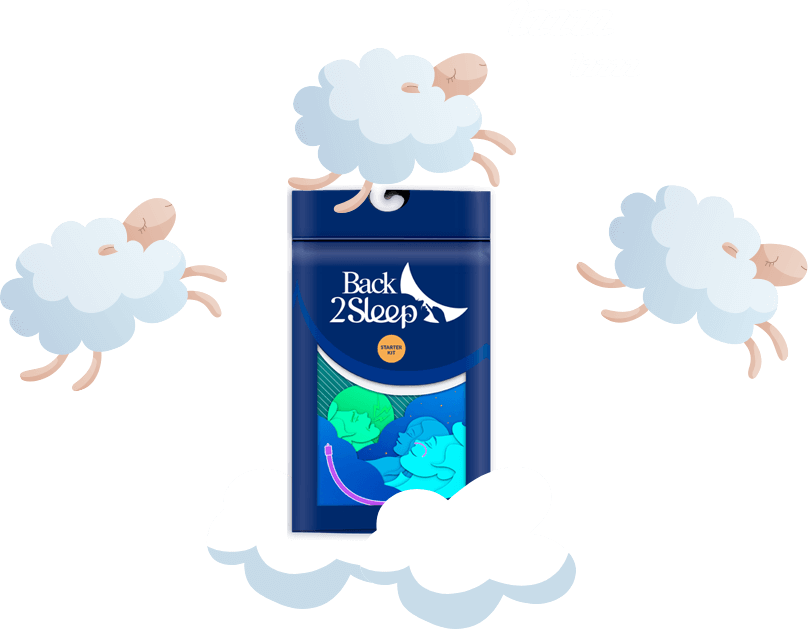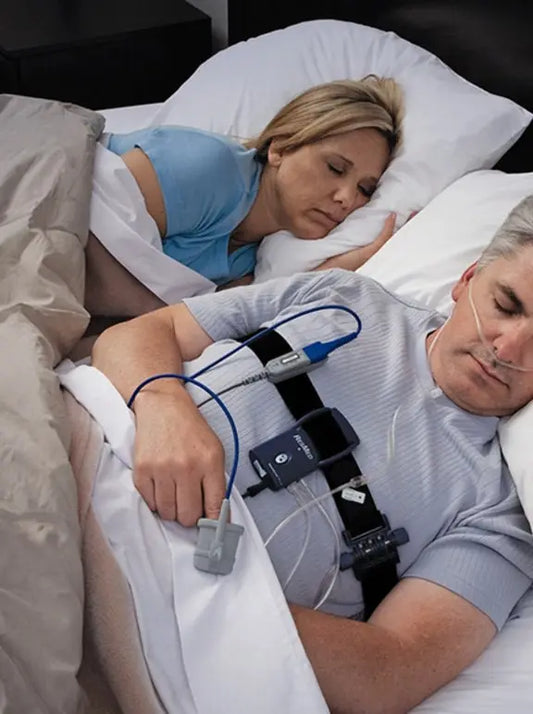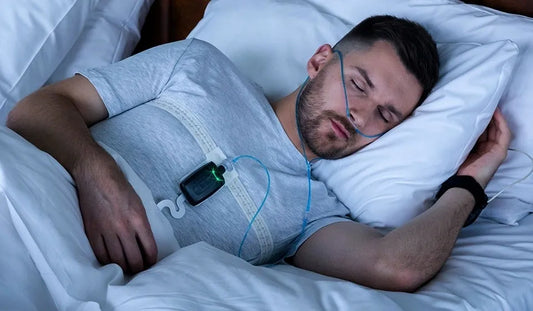Snoring is often joked about, but sometimes hides serious health issues.
This nocturnal noise, which can disturb the sleep of an entire household, is the result of vibrations in the tissues of the respiratory tract.
But did you know that behind this noise often lie problems such as sleep apnea nasal problems or a poor lifestyle .
The good news is that there are solutions!
What is snoring and why is it a concern?
Snoring occurs when the flow of air through the respiratory tract is partially blocked during sleep.
This blockage can occur at various levels, such as:
- the nose,
- mouth,
- or pharynx.
Structures such as:
- the soft palate,
- uvula,
- and tonsils can vibrate as air passes through, producing the characteristic snoring sound.
Factors such as:
- nasal congestion,
- deviations of the nasal septum,
- or narrowing of the airways due to overweight can aggravate this condition.
💊What is the possible danger of snoring?
Beyond the discomfort for the sleeper and those around him, snoring can be a sign of a more serious disorder, such as:
- sleep apnea,
- where breathing stops and starts again with loud snoring.
This phenomenon can lead to a decline in sleep quality, resulting in:
- daytime sleepiness,
- a decrease in concentration,
- and an increased risk of cardiovascular disease.
Regular, intense snoring should not be ignored, as it may require medical intervention to avoid further health complications.

💊What are the main causes of snoring?
The reasons behind these noisy nights vary greatly, including anatomical factors such as:
- narrowing of the nasal passages,
- overweight,
- age,
- or the loosening of tissues in the throat.
Or lifestyle habits such as:
- alcohol consumption,
- smoking can also aggravate the problem.
Even allergies or a simple cold can be the culprit.
Identifying the cause is the first step to finding the right solution and saying goodbye to noisy nights.
💊What is the impact of snoring on health?
Beyond the noise, snoring can disrupt your sleep, leading to:
- daytime fatigue,
- irritability,
- and even concentration problems.
For those who share your bed, it's also a source of disturbance, affecting their rest.
In the long term, untreated snoring can lead to increased risks, as explained above, which should not be underestimated.
How can you tell if you snore?
Wondering if you're responsible for the nocturnal symphony echoing in your bedroom?
📌 As a first step, perform a self-assessment: ask your partner or use a recording application while you sleep.
Look out for signs such as a dry mouth or sore throat on waking, which can indicate that you're breathing through your mouth, often a companion of snoring.
💊When should I see a doctor about snoring?
If your snoring is accompanied by:
- breathing pauses,
- excessive daytime sleepiness,
- or if you wake up feeling like you haven't recovered, it's time to consult your doctor.
These symptoms may indicate sleep apnea, a disorder that requires medical attention.
An ENT specialist or sleep expert can provide you with a precise diagnosis and guide you towards suitable solutions, such as an intranasal orthosis, a mandibular orthosis or a CPAP machine, to ensure that your snoring is a thing of the past.
What are the treatments and remedies to stop snoring?
There are a multitude of treatments and remedies to combat snoring.
💊What lifestyle changes are applicable to reduce snoring?
You might be surprised at the beneficial effect simple changes in your daily routine can have on snoring.
In addition to well-known tips such as:
- sleep on your side to prevent the tongue and soft tissues from blocking the airways,
- maintain a healthy weight and avoid alcohol before bedtime.
Apart from these well-known facts, other aids exist and can help you, such as exercises that strengthen your throat muscles.
For example, repeating the vowels (a-e-i-o-u) aloud for three minutes every day, practicing singing, or even performing tongue exercises (such as pushing the tongue against the roof of the mouth and sliding the tongue back) can all help reduce snoring.
These exercises, performed regularly, can improve muscle tone in the upper airways, which can reduce the frequency of snoring.
Consider incorporating them into your daily routine, perhaps in the morning or before bedtime.

💊What anti-snoring devices are available?
📌 Intranasal orthoses provide airflow by opening the nasal airways.
📌 Mandibular advancement braces, for example, are customized dental appliances that slightly advance the lower jaw and tongue, opening up the upper airway.
📌 Nasal dilators, whether external like nasal strips or internal like nasal cones, work to widen the nostrils, reducing air resistance and snoring.
It is advisable to consult a healthcare professional to select the most suitable device and ensure its correct use to maximize benefits.
💊What are the medical options?
When home remedies and lifestyle changes aren't enough to solve snoring problems, more advanced medical solutions can be considered.
📌 Among these, Continuous Positive Airway Pressure (CPAP) is a commonly prescribed therapy for sufferers of obstructive sleep apnea.
The patient wears a nasal or face mask, connected to a machine that generates a continuous flow of air, keeping the airways open.
📌 For surgical procedures such as radiofrequency or uvulopalatopharyngoplasty (UPPP), the patient will undergo a procedure to reduce or eliminate soft tissue in the throat or palate, thus facilitating the passage of air.
These options require medical assessment and follow-up to ensure their efficacy and to tailor treatment to the patient's specific needs.
The intranasal snoring orthosis
The intranasal orthosis helps in the fight against snoring, offering a non-invasive, comfortable alternative for those seeking to improve their quality of sleep.
This brace gently widens the nasal passages, facilitating breathing and significantly reducing the vibrations that cause snoring.
By integrating Back2Sleep into your night-time routine, you benefit from a direct approach to treating nasal obstruction, one of the main culprits of snoring.
What's more, regular use can help reduce the risks associated with more serious sleep disorders, such as sleep apnea.
Frequently asked questions about "snoring what to do"
💊Why does snoring intensify with age?
With age, the muscles of the throat and tongue tend to relax, which can reduce the space in the airways and increase the likelihood of snoring.
The accumulation of fatty tissue around the neck and reduced muscle tone also contribute to this phenomenon.
These anatomical and physiological changes explain why people are more likely to snore as they age, often requiring targeted interventions to alleviate snoring.
💊Is snoring hereditary?
Yes, snoring can have a hereditary component.
If your parents or relatives snore, you're more likely to do the same.
Physical characteristics such as the structure of the airways, the shape of the palate, or the size of the tonsils, all of which can influence snoring, are often inherited.
However, it's important to note that snoring can also be influenced by lifestyle factors, which means that even if you have a genetic predisposition, lifestyle adjustments could help reduce or prevent snoring.

- Scegliendo una selezione si ottiene un aggiornamento completo della pagina.
- Si apre in una nuova finestra.







